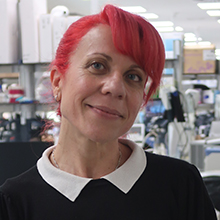- Duración
- 03/10/2022 - 02/10/2025
- Coordinador
- Quique Bassat
- Financiadores
- Ministerio de Ciencia e Innovación - Agencia Estatal De Investigación. Reference: CCPP2021-008459 Call: Proyectos de colaboración público-privada
Group B streptococcus (GBS) is a major cause of perinatal infections affecting both pregnant mothers (causing chorioamnionitis) and specially their offspring causing an intolerably high burden of disease and death in newborns, particularly in low-income settings. Carriage of GBS, which occurs in 18% of pregnant women (with regional variation ranging from 11% to 35%) is a necessary condition for vertical transmission of this pathogen. A positive detection (typically around week 36 of pregnancy) triggers the proactive administration of preventive antibiotics to the mother during delivery, to ensure that GBS is not vertically transmitted during childbirth, thus minimizing risks to the baby. Unfortunately, the detection of the pathogens involves culturing methods, which require long turnaround times for results and laboratory infrastructure.
Diagnosing GBS invasive bacterial disease in the newborn is even more complex, since it requires a minimum volume of blood and/or CSF for successful culture that can be difficult to obtain from these patients, in addition to the turnaround times for results of few days. A point-of-care rapid screening test that could be applied near the patient to detect GBS infections (both in mothers but also at the newborn’s side) would be a revolutionary approach to target interventions, and reduce the burden of GBS disease globally, with special impact in low-income countries due to the challenges of implementing microbiological cultures in these settings.
AmpliSens proposal addresses the development of a rapid and portable molecular test for the screen-out of neonatal sepsis due to GBS in the blood or CSF of the suspected newborn and for the screening of pregnant women. Such a test can be used both in low resource settings where microbiological cultures are not available, and in high-income countries to dramatically improve turnaround times for results and reduce costs. The product (AmpliFast) relies on two modules, being the first a hand-held thermocycler operated by batteries to perform double-tagging end-point PCR in combination with an RDT platform (rapid diagnostic test), developed by BioEclosion being a disposable cartridge and a reader. This approach can generate billions of tagged DNA copies from a single target molecule, increasing the sensitivity of the approach, which can be rapidly detected with the RDT platform to provide the results of GBS infection within half an hour and in low resource settings.
The pandemic highlighted the role of PCR as a dominant technology for a massive laboratory testing to confirm the diagnosis of an infection disease. In this proposal, BioEclosion joins forces with a consortium of experts to put PCR at point-of need, by combining two technologies in a prototype, to solve the complexities of diagnosing neonatal GBS sepsis as a first model.
The diagnostic test is rapid and inexpensive, requiring minimal handling, and can be easily introduced into the general practitioner’s armory for ambulatory screening of infection. Furthermore, although the first application that is envisaged for is targeted to neonatal sepsis infection, this approach will be also transferable to the diagnosis at community and primary-care level of other infectious diseases related with global health, thus increasing its valorization.
If granted, BioEclosion (coordinator Dr. Jofre Ferrer Dalmau) will partner with UAB team (PI: Prof. Isabel Pividori, expert in the Rapid Diagnostic Tests), ISGlobal team (PI: Prof. Quique Bassat, key opinion leader in neonatal infections) and EureCat (for prototyping the product) in this acceleration phase, to build a reliable, scalable, and secure product faster and at the same time, ensuring compliance with the EU Regulation, for the rapid detection of GBS infection.
The combination of academic and industrial partners in the AmpliSens consortium, as well as clinical and basic science researchers working in research institutions, provides a highly complementary study team, which will deliver project aims according to chronogram. This, in combination with a valorization and commercialization plan, will pave the way for future large-scale implementation.
Total Funding
49.975,77 €
Nuestro equipo
Coordinator
-
 Quique Bassat Director general
Quique Bassat Director general
ISGlobal Team
-
 Bàrbara Baro Assistant Research Professor
Bàrbara Baro Assistant Research Professor -
 Sara Soto González Associate Research Professor y directora del Programa de Infecciones Víricas y Bacterianas
Sara Soto González Associate Research Professor y directora del Programa de Infecciones Víricas y Bacterianas -
 David Torres Predoctoral Medical Research Fellow
David Torres Predoctoral Medical Research Fellow
Otros proyectos
Ver proyectos pasadosCaDMIA-plus
Validación continuada de la autopsia mínimamente invasiva (MIA) para la investigación de la causa de muerte en niños pequeños, y desarrollo de un centro de investigación y formación sobre el estudio de la causa de muerte
MAMAH
Improving Maternal and Infant Health by reducing malaria risks in African women: evaluation of the safety and efficacy of dihydroartemisinin-piperaquine for intermittent preventive treatment of malaria in HIV-infected pregnant women
ICARIA
Improving Care through Azithromycin Research for Infants in Africa
MIBio
Identification of Prematurity and Pre-Eclampsia as Causes of Mortality
MULTIPLY
MULTIple doses of IPTi Proposal: a Lifesaving high Yield intervention
MA-CoV
Prevalence and impact of SARS-CoV-2 infection on maternal and infant health in African populations
IPERVAC-SL
Impact of perceptions of COVID-19 vaccines on health-seeking behaviours in Sierra Leone
RESPIRE
Respiratory syncytial virus (RSV) in African pregnant women and children
VITAL
Towards preparedness for new maternal vaccinations: Understanding barriers and facilitators to maternal vaccine acceptance
SARA (SARS-CoV-2 and Acetylsalicylic acid)
Efficacy of low dose acetylsalicylic acid in preventing adverse maternal and perinatal outcomes in SARS-CoV-2 infected pregnant women
HIV drug resistance (HIVDR)
Description of HIV drug resistance patterns and its association with the risk of HIV mother to child transmission among pregnant women from southern Mozambique




